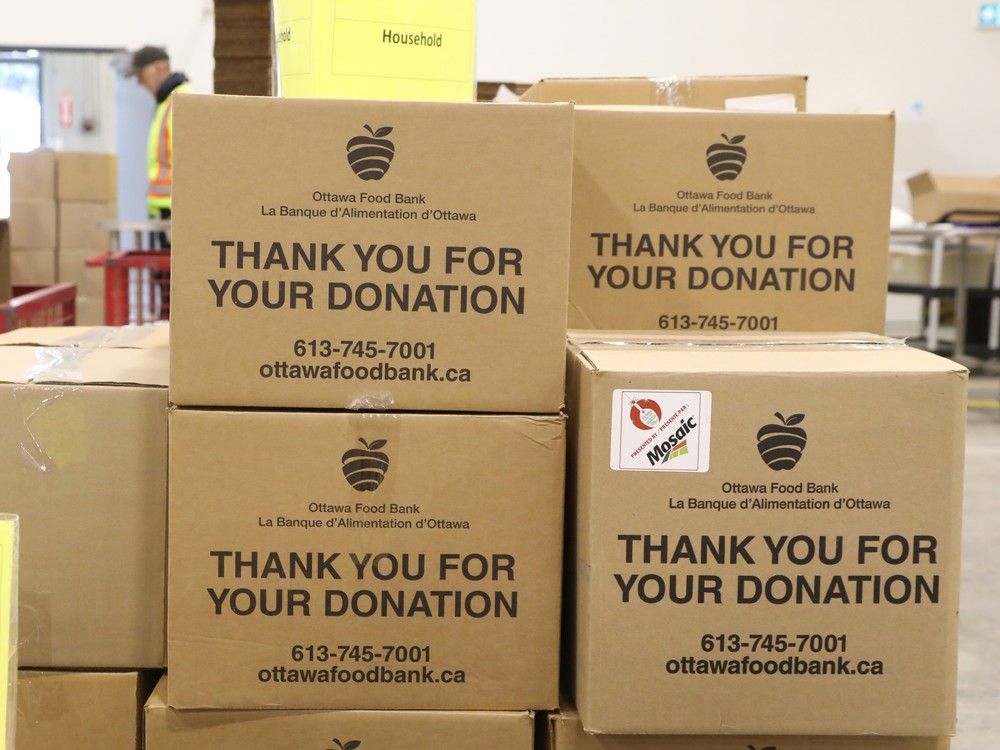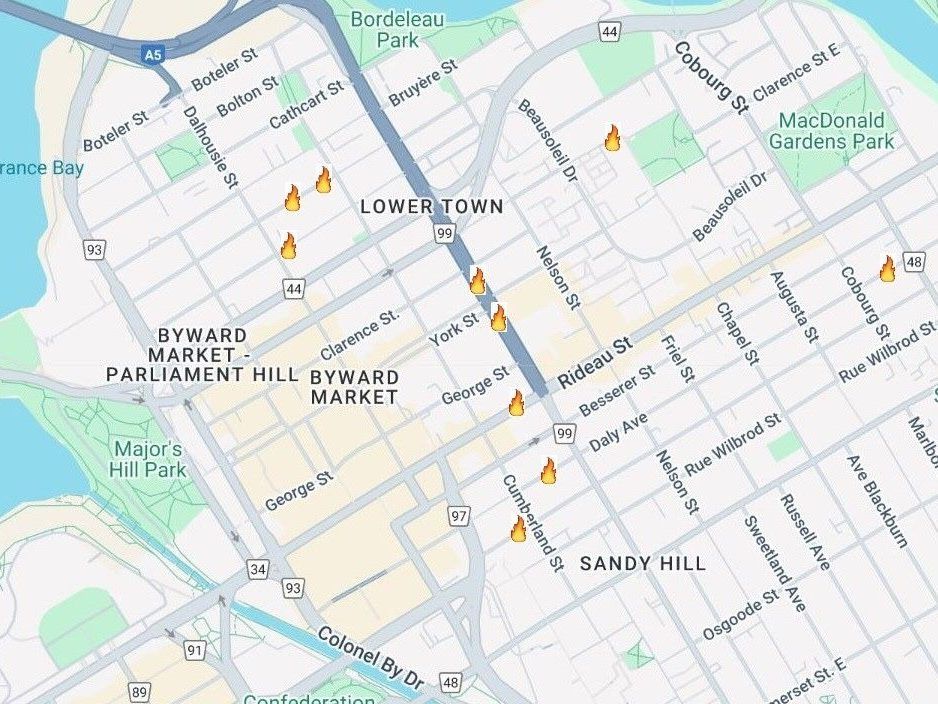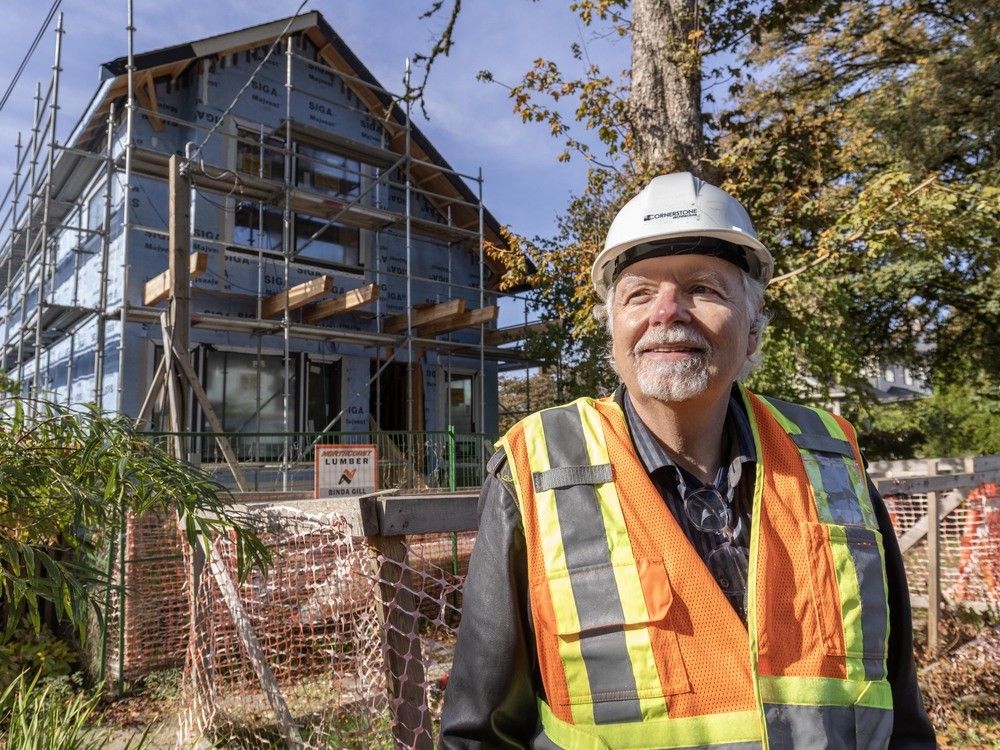By a variety of measures, the expensive and contentious pipeline project is bearing fruit as more Canadian oil reaches the West Coast to be shipped to export markets.
Author of the article:

The Canadian Press
Amanda Stephenson
Published Oct 21, 2024 • 5 minute read

CALGARY — Nearly six months after its opening, the Trans Mountain pipeline expansion is boosting Canada’s energy sector as promised — but questions still linger about who will pay for the project’s massive cost overruns.
By a variety of measures, the expensive and contentious pipeline project is bearing fruit as more Canadian oil reaches the West Coast to be shipped to export markets.
Advertisement 2
THIS CONTENT IS RESERVED FOR SUBSCRIBERS ONLY
Subscribe now to read the latest news in your city and across Canada.
- Unlimited online access to articles from across Canada with one account.
- Get exclusive access to the Vancouver Sun ePaper, an electronic replica of the print edition that you can share, download and comment on.
- Enjoy insights and behind-the-scenes analysis from our award-winning journalists.
- Support local journalists and the next generation of journalists.
- Daily puzzles including the New York Times Crossword.
SUBSCRIBE TO UNLOCK MORE ARTICLES
Subscribe now to read the latest news in your city and across Canada.
- Unlimited online access to articles from across Canada with one account.
- Get exclusive access to the Vancouver Sun ePaper, an electronic replica of the print edition that you can share, download and comment on.
- Enjoy insights and behind-the-scenes analysis from our award-winning journalists.
- Support local journalists and the next generation of journalists.
- Daily puzzles including the New York Times Crossword.
REGISTER / SIGN IN TO UNLOCK MORE ARTICLES
Create an account or sign in to continue with your reading experience.
- Access articles from across Canada with one account.
- Share your thoughts and join the conversation in the comments.
- Enjoy additional articles per month.
- Get email updates from your favourite authors.
THIS ARTICLE IS FREE TO READ REGISTER TO UNLOCK.
Create an account or sign in to continue with your reading experience.
- Access articles from across Canada with one account
- Share your thoughts and join the conversation in the comments
- Enjoy additional articles per month
- Get email updates from your favourite authors
Sign In or Create an Account
or
Article content
The Trans Mountain pipeline carries crude oil from Alberta to the B.C. coast. Its expansion, which opened May 1, tripled the capacity of the existing pipeline, adding an additional 590,000 barrels per day of shipping capability.
That’s massive for an industry that has long been pipeline-constrained — the Trans Mountain pipeline expansion accounts for 17 per cent of the total pipeline export capacity available to Canadian crude oil shippers, according to the Canada Energy Regulator.
Its construction was a lengthy, costly process. The Trans Mountain pipeline expansion was first proposed in 2012 by Kinder Morgan Canada, which encountered so much environmental and Indigenous opposition that it ultimately threatened to scuttle the project.
The federal government purchased the pipeline for $4.5 billion in 2018 in an effort to get the project over the finish line. Once construction did start, the project ran into numerous delays and budget overruns, with its price tag spiralling over the course of four years to an eye-popping $34 billion.
But now that it is completed, Canadian oil production is smashing records, and economists say Trans Mountain will provide a lift to the GDP of both the province of Alberta and Canada as a whole this year.
By signing up you consent to receive the above newsletter from Postmedia Network Inc.
Article content
Advertisement 3
Article content
“It’s really hard to overstate the importance of this pipeline,” said Mark Parsons, chief economist at ATB Financial, in an interview.
“We really consider the Trans Mountain expansion a game-changer.”
In a nutshell, the Trans Mountain expansion has brought an end — for now — to the transportation bottlenecks that for years kept a lid on the Canadian oil industry’s ability to grow. With fresh ability to ship barrels out of Western Canada’s oil-producing region, companies have been able to turn on the taps.
According to Canada Energy Regulator statistics, year-to-date crude oil production in this country as of the end of July 2024 averaged 5.0 million barrels per day. That’s the highest on record, up from 4.8 million barrels on average at the same point in the year in 2023.
Year-over-year production growth of an additional 100,000 to 300,000 barrels per day will continue into 2025, said energy analyst Rory Johnston — making Canada one of the largest sources of crude oil output growth in the world.
OIL EXPORTS UP
“Growth … of Canadian production is expected to continue as one of the major drivers of non-OPEC+ crude output into the next year,” Johnston wrote in a recent edition of his Commodity Context newsletter.
Advertisement 4
Article content
While much of the oil unloaded from the Trans Mountain pipeline is being shipped by tanker to California, some is ending up in Asia. Canadian oil exports to Asia have gone from effectively zero before Trans Mountain entering operation to a monthly average of $325 million since May, according to ATB Financial.
RBC Capital Markets, which tracks oil shipments departing from the Westridge Marine Terminal in Vancouver, has identified tankers loaded with Canadian oil from the Trans Mountain pipeline headed to destinations like China, South Korea and Brunei, in addition to California and Washington.
The pipeline expansion is improving the profitability of Canadian oil companies. Lack of transportation availability has in the past “frequently and chronically” depressed the value of Canadian crude, Johnston said, adding that the addition of Trans Mountain’s new capacity is reducing that discount and lessening the risk of extreme price volatility in the future.
But it is also benefiting the economy as a whole.
The Bank of Canada has estimated that Canada’s total export growth will rise by 6.25 per cent on average over the second half of 2024. That increase is being led by oil exports due to the new capacity created by the Trans Mountain expansion, the central bank said.
Advertisement 5
Article content
TD has suggested increased oil output this year will add between 0.2 and 0.4 percentage points to Canada’s total GDP. It predicts Alberta’s real GDP will grow by 1.9 per cent in 2024, trailing only Newfoundland and P.E.I. and coming in significantly higher than the national forecast for GDP growth of 1.1 per cent.
ATB Financial is projecting 2.5 per cent economic growth for Alberta this year, compared to 1.2 nationally. For next year, it is calling for 2.8 per cent growth in Alberta compared to 2.0 per cent nationally.
“One of the main reasons we are expecting the Alberta economy to grow faster than the national economy is the Trans Mountain expansion pipeline,” Parsons said.
BUT WHO PICKS UP THE TAB?
But there are clouds ahead. The Trans Mountain pipeline expansion is now one of the most expensive routes for oil shippers to move their product out of the western Canadian Sedimentary Basin, due to increases in its tolls (the term for the fees Trans Mountain Corp. charges to move oil).
Trans Mountain Corp, a Crown corporation, wants to hike the tolls even higher, to help cover the massive cost overruns incurred while building the pipeline.
Advertisement 6
Article content
But oil companies are pushing back, arguing the proposed toll increases are twice the amount of a 2017 estimate and place an unfair burden on pipeline customers.
The Canada Energy Regulator is scheduled to hold an oral hearing on the tolling dispute next spring.
Simon Fraser University professor Thomas Gunton, the author of a report on the tolling issue, said the industry norm is that oil companies are the ones who cover the operating and capital costs of the pipelines they ship on. He said if the CER determines the oil industry should not have to pay for the bulk of this government-owned pipeline project’s cost overruns, then taxpayers will be left on the hook.
“The tolls that are set now cover less than half of the capital costs of this pipeline,” Gunton said.
“It would be unique in the world, and represent a significant fossil fuel subsidy, to have the taxpayer covering a sizable proportion of the cost of shipping oil for the oil industry.”
Gunton suggested a levy should be applied on all barrels of oil being shipped out of Western Canada until the costs of the Trans Mountain expansion project are recovered.
Advertisement 7
Article content
“There is no justification for providing a taxpayer subsidy to a private pipeline, even if it results in improvements to the Canadian economy,”
Recommended from Editorial
-

Number of oil tankers entering Vancouver harbour jumps from two to 20 a month
-

Groups opposed to pipeline call for B.C. to push for oil spill evacuation plan
Bookmark our website and support our journalism: Don’t miss the news you need to know — add VancouverSun.com and TheProvince.com to your bookmarks and sign up for our newsletters here.
You can also support our journalism by becoming a digital subscriber: For just $14 a month, you can get unlimited access to The Vancouver Sun, The Province, National Post and 13 other Canadian news sites. Support us by subscribing today: The Vancouver Sun | The Province.
Article content
.png)
 7 hours ago
9
7 hours ago
9




































 Bengali (BD) ·
Bengali (BD) ·  English (US) ·
English (US) ·